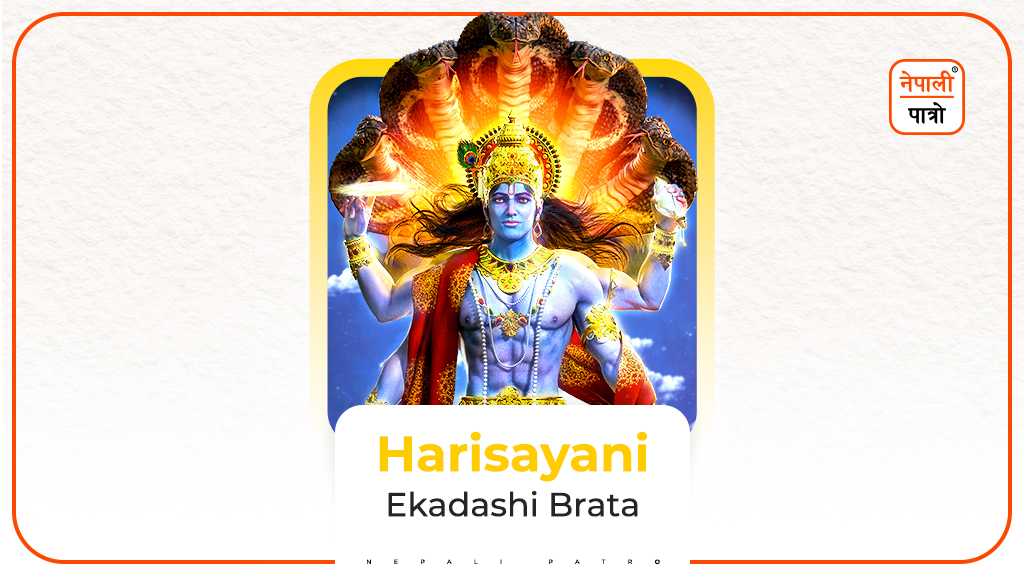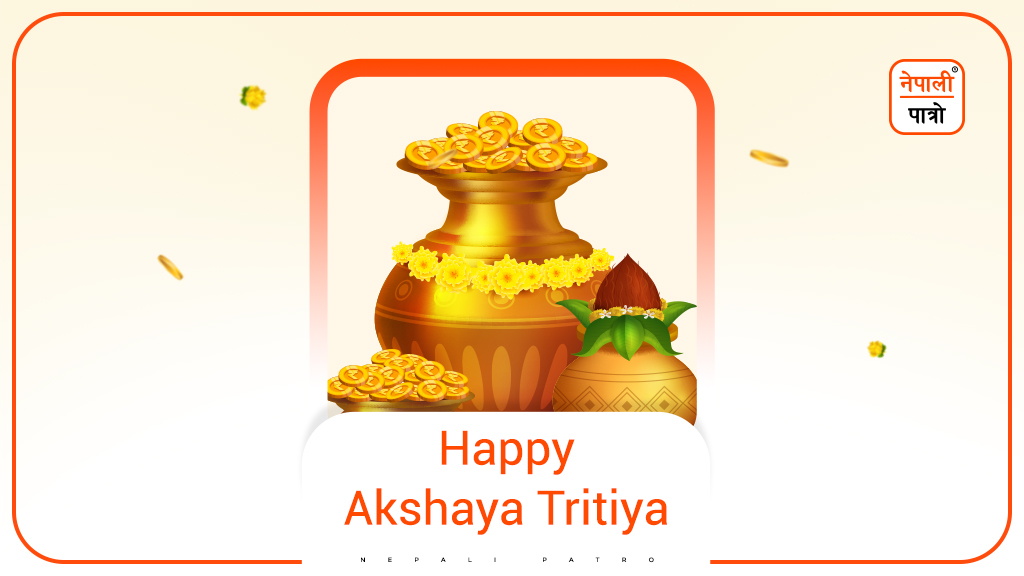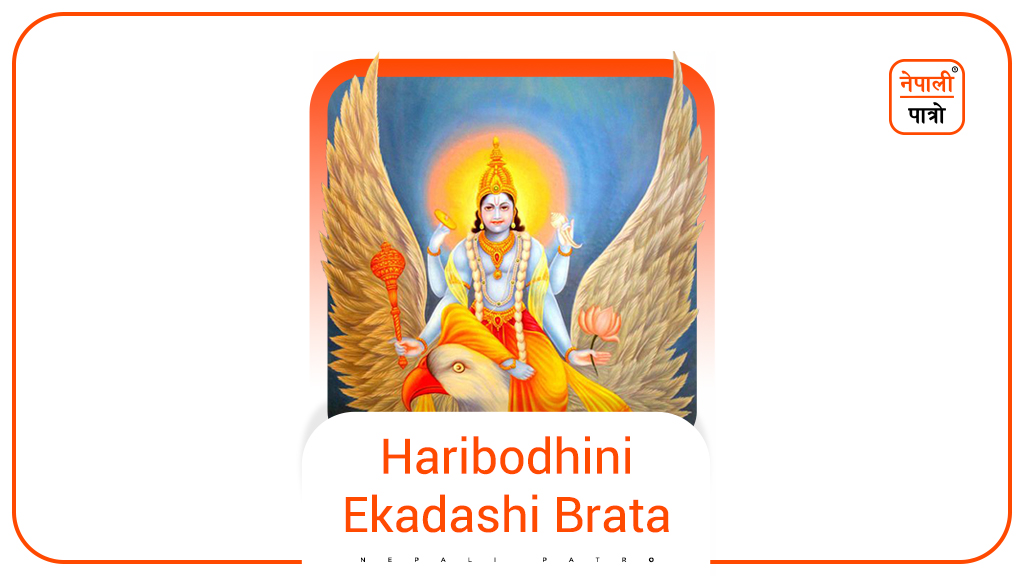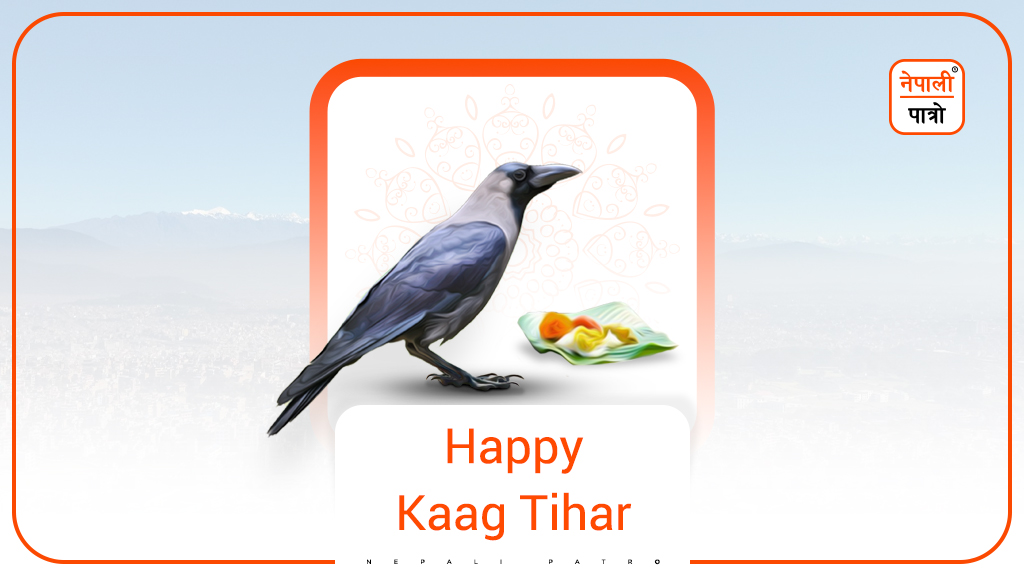
Harishayani Ekadashi
The Ekadashi Tithi (date) of the month of Ashad is called Harishayani Ekadashi. ‘Hari’ means Lord Vishnu. ‘Sayan’ means sleeping or to sleep. Lord Shri Hari sleeps from Ashad Shukla Ekadashi in Chhir Sagar (ocean of milk) on his bed of “Sheshnag” (bed of serpents) which is the reason this day is called Harishayani Ekadashi.
As mentioned in the Puranas Lord Shri Hari from this day onwards rests for four months. Lord Shrihari sleeps from the Asad Sukla Ekadashi, turns right on his bed on the Bhadra Shukla Ekadashi and wakes up on Kartik Shukla Ekadashi. Thus, the two latter Ekadashis are known respectively as Hariparvartini Ekadashi and Haribodhini Ekadashi. Special moments of God are considered to be of ultimate good welfare for the whole human being. Hence, History, mythology, and scriptures have instructed us to celebrate these activities of God as a special celebration. Skanda Purana has instructed us to celebrate the time of sleeping. Bramha Purana, Bhavishya Purana, and Baraha Purana also instruct the god going to sleep, conversion, and his awakening to be taken as a special celebration.
From the Ekadashi of Ashad Shukla Paksha, the four-month fast begins. However, after completing the Ekadashi fast of Kartik Shuklapakcha, the fast is brought to completeness by methodically eating and drinking after the fast. Among the Ekadashi falling in between other Ekadashi, the importance of Harishayani Ekadashi and Bodhini Ekadashi is stated to be of more importance. Ekadashi is the most virtuous day of the year, therefore these two Ekadashi are also known as Thuli Ekadashi (big Ekadashi). In the Ekadashi Mahatma, as well as the Ekadashi law, the law of obedience by the person performing it is mentioned in the Brahma Vaivarta Purana. Extreme Fasting is considered to be the best in Ekadashi fast, not consuming even grains. But fasting can also be done by eating fruits, sesame, milk, yogurt, whey, water, ghee, etc. Consuming grains like rice, wheat, or other grains during Ekadashi fast is strictly forbidden. According to the Scriptures, all sins are settled in the grains on the day of Ekadashi. Physical conditions should be taken into consideration while fasting. Therefore, the evening meal is also considered to be prohibited in compliance with the Ekadashi.
Ekadashi fast is to be followed as a regular routine. If it is not followed or performed one will have a bad effect or bad karma. Therefore, the karma that is not fulfilled by a specific wish is a daily rite (Nitya karma). Whereas, when performed, it is fulfilled by a specific wish but, if not performed one will have a bad effect is the one called accidental (Naimittik) karma. Likewise, when performed, fulfilled by a specific wish but, if not performed, have a bad effect is the karma called arbitrary (Kamya) karma. The practice of not following the Ekadashi fast and ignoring the celebration of God is like disobeying the holy scriptures thus, this is a daily (Nitya) Karma. Methodically fasting yields different fruits thus, it is also a kamya karma.
Chaturmas are the four months’ time from lord Shrihari going to bed till his awakening. Continuous worship of God throughout the chaturmas assures that all sins will be destroyed and one receives God’s blessings and mercy. When one fasts on the basis of an unselfish spirit Lord Hrishikesh is pleased and all the vows, and desires of the person fasting, all wishes, are fulfilled. According to the prophecy of Bhavishya Purana, the people who commemorate Lord Narayana fast during the Chaturmas remembering him, after death riding happily on a craft shining like a sun, reside happily in Vishnulok, until the great flood.
The worship and reverence of Lord Vishnu are performed in all Ekadashi. But since this day God is in the state of sleep, it is customary to worship God in a special way. On this day the idol of Lord Narayana, kept in a special seat should be bathed with Panchamrit (aggregation of five elements i.e milk, honey, curd, molasses, and ghee) along with water from the conch. After that 16 acts of homage should be performed, by coating the figure with a mixture made of sandalwood and decorating different hands with conch (Sankha), discus (chakra-sharp circular missile weapon), club (Gada), lotus (kamal), and body dressed with (pitambara) the religious yellow garment and with different beautiful ornaments. Then offering a garland of Jasmine flower the mantra given below should be recited:
‘सुप्ते त्वयि जगन्नाथे जगत्सुप्तं भवेदिदम्।
विबुद्धे च विबुध्येत प्रसन्नो मे भवाच्युत।।’
(hey Jagganath, the world too sleeps when you sleep and when you wake up, this whole universe rises along with its living being. hey Achyut, please rejoice over me.)
The participants of the Chaturmas Fasting standing before the figure of Lord Keshav should recite the following mantra: –
चतुरो वार्षिकान् मासान् देवस्योत्थापनावधि।
इमं करिष्ये नियमं निर्विघ्नं कुरु मेSच्युत।
इदं व्रतं मया देव गृहीतं पुरतस्तव।
निर्विघ्नं सिद्धिमायातु प्रसादात्तव केशव।।
(Lord, for the four months of this year, I will perform this fasting as long as you are not awake. Lord, please make this obstacle less and more smooth. I have taken this fast before you. Therefore, I earnestly pray with you for the fulfillment of the fast).
Praying like this in the above-mentioned method offerings of various kinds of sweets, fruits and performing an Aarati (a part of puja, in which light (usually from a flame) is offered to one or more deities), presenting flowers of Pushpanjali (a nosegay flower) in both hands opened and hollowed must be performed. Like this, the offering should be concluded. Then onwards one should eat fruits after offering food to the brahmins. During the night with prayers, hymns, and listening to the lord’s story one should also sleep near the figure of the Lord himself.
During the sleeping period of Shri Hari, it is not possible to receive his vision or good wishes of the lord, thus best karmas/acts such as the Sacred Thread ceremony, weddings, and other good karmas should not be performed. The scriptures tell that one who is observing the fasting during this month of Shravan should not consume spinach, yogurt during the month of Bhadra, milk during the month of Ashwin, and no lentils and pulses during the Kartik month. Likewise for the senses refinement and purification of the body during chaturmas (four months) one who is fasting should not consume Jyamir ( Citrus aurantiifolia), Rajma (Kidney bean), Musuro (lentils-Lens culinaris), Sarsyu (mustard), Mula (Raddish), Gajar (Carrot), Ukhu (Sugarcane), Kubhindo (Gourd), Imli (Tamarind), Bayar (Jujude), Bhanta (Brinjal), Amla (gooseberry), etc.
During Ekadasi fasting from one day before the initiation of the fasting till its conclusion the couples should not sleep together. In the same way, one should not touch meats and fish, alcohol, onion, garlic, etc. When one’s adorable god is in his bed, the fasting personnel should not sleep in the four-legged bed, and no lies should be spoken. Those observing this chaturmasa fasting should obey and respect these rules during the fasting period. This is the day one should sow (Tulasi Ropan) the dear of the Lord hari, goddess Tulsi in every household and during these four months should make respectful offerings to Goddess Radha and Lord Damodar as an avatar of Lord Bishnu. In Haribodhini Ekadashi, there is a tradition to celebrate the wedding of Tulsi after Lord Shri Haris’ awakening from his sleep. Today, Tulsi, famous in Ayurveda as a virtuous medicine for lots of diseases and considered religiously holy and of great welfare is sown in a pure place in every household. By doing so, Narayan’s residence is practically in this place, thus peace and prosperity dwells in the house. To Read this article in the Nepali Language please click here.



June 15, 2022 4 years
no comment
July 9, 2022 4 years
jlesawar
July 17, 2024 2 years
Nice information. Thank You!
July 17, 2024 2 years
very useful content